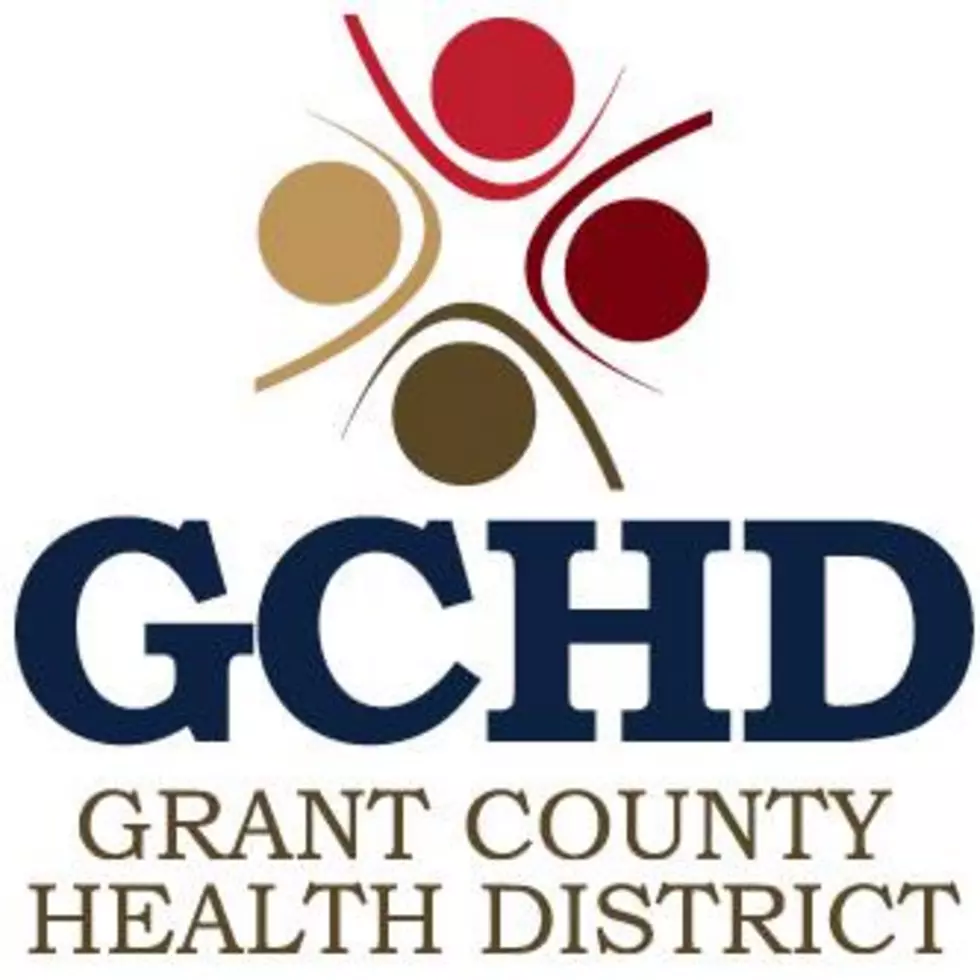
Grant County Health District Investigating Two Cases of Whooping Cough
Grant County Health Officer, Dr. Alexander Brzezny, has issued the following alert to the Grant County media: Grant County Health District (GCHD) staff are investigating two (2) Grant County residents with laboratory confirmed whooping cough (pertussis). The first individual has 5 family members with symptoms of pertussis, including cough. Three of those five family members with cough are considered "probable whooping cough cases", and are students at Park Orchard Elementary in Moses Lake . They attended school while they were contagious. The 2nd individual with lab confirmed pertussis is a student at Lake Roosevelt in Grand Coulee. Exposure letters have been distributed at impacted schools. There is the potential for more cases to occur. All family members with a “close” contact to those with whooping cough have been notified by GCHD and offered post-exposure prophylaxis (PEP) with antibiotics.
With school in session and in an effort to control the spread of whooping cough, GCHD staff are working with school administrators and nurses to notify families and get their child’s shots up-to-date. WAC 246-105-030 requires a pertussis vaccine (Tdap and Dtap) for school entry which is to be enforced by the school districts. GCHD wants parents to be aware that if their child is identified to not be up-to-date with the pertussis vaccination, and there is a pertussis outbreak at their school, the child may be EXCLUDED from school and all school related activities for a period of time. Any child with symptoms of pertussis (cough) will need to be excluded immediately until further evaluation of cough is completed.
Students can easily spread illnesses to one another because of poor hand washing, uncovered coughs and staying in close proximity to each other. When children are not up-to-date on all of their shots, they are at higher risk for getting sick and spreading disease to others in their classroom and community – including babies who are too young to get many of the shots, and people with weakened immune systems due other health conditions.
Whooping cough is a highly contagious disease spread through droplets coughed or sneezed into the air and/or onto surfaces. It starts with a cough which becomes much worse over 1-2 weeks. If you have symptoms of whooping cough AND think you may have been exposed, please discuss this with your healthcare provider or call GCHD and speak with a Public Health Nurse (509-766-7960). It is important to wear a mask (when available) covering your mouth and nose when you visit your doctor’s office to help stop the spread of the disease. Always follow medical directives and stay isolated from others until it is determined that you are not contagious.
Early symptoms can last for 1 to 2 weeks and usually include:
- Runny nose
- Low-grade fever (generally minimal throughout the course of the disease)
- Mild, occasional cough
- Apnea – a pause in breathing (in babies)
Because whooping cough in its early stages appears to be nothing more than the common cold, it is often not suspected or diagnosed until the more severe symptoms appear.
Late symptoms- After 1 to 2 weeks and as the disease progresses, the traditional symptoms of whooping cough may appear and include:
- Paroxysms (fits) of many, rapid coughs followed by a high-pitched "whoop"
- Vomiting during or after coughing fits
- Exhaustion after coughing fits
It is important to follow the immunizations scheduled because immunity from the Pertussis (whooping cough) vaccine or disease wears off. The vaccine is particularly important to those who could expose infants (pregnant women, family members, healthcare and daycare workers, etc.) and where the disease can spread rapidly (schools, hospitals, etc.).
Below is the recommended Whooping Cough vaccine schedule:
- Babies need 4 DTap vaccines (at 2 months, 4 months, 6 months and 15-18 months old),
- 5th DTap vaccine at 4-6 years old,
- Older children need the Tdap booster at > 10 years old/ before entry into the 6th grade, or after 7 years of age if not properly immunized with DTap according the schedule,
- All adults need at least onetime Tdap vaccine; pregnant women need one Tdap each pregnancy.
Please contact your doctor/healthcare clinic or a GCHD nurse if you would like more information. Vaccination is available at healthcare clinics and many pharmacies.
Addition Resources
More From NewsRadio 560 KPQ









